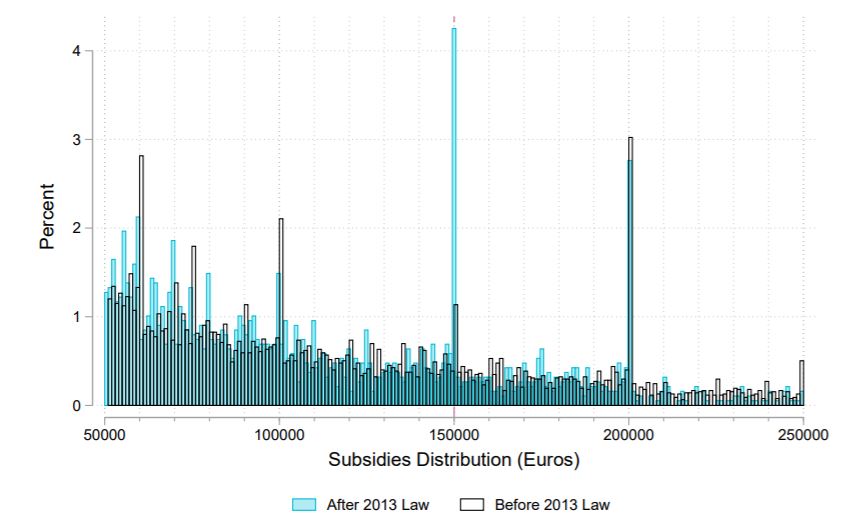|
Repressive policies to fight against criminal organizations are often met with a violent response from criminal groups. What happens when the state adopts a non-repressive strategy?
We evaluate a policy aimed at fighting criminal organizations by targeting their revenues. Since 2013, Italian companies applying for more than 150,000 Euros in public funds undergo a police screening to determine if they have connections to mafias. We exploit this time-varying discontinuity to identify firms self-selecting below the threshold after the law was approved. We observe a large jump in subsidies for values just below the cutoff which cannot be attributed to avoiding bureaucratic costs or investigations for other crimes. Firms sorting are concentrated in mafia affected cities, display worse performances, operate in typical mafia-affected sectors and have balance sheet indicators of money laundering. These firms receive 3.8% of all subsidies assigned in our sample. Our findings shed light on the extent to which mafia-connected firms misappropriate public funds and on the effectiveness of screening policies which apply discontinuously when criminal groups behave strategically. Last version This paper was presented at:
Comments are closed.
|
